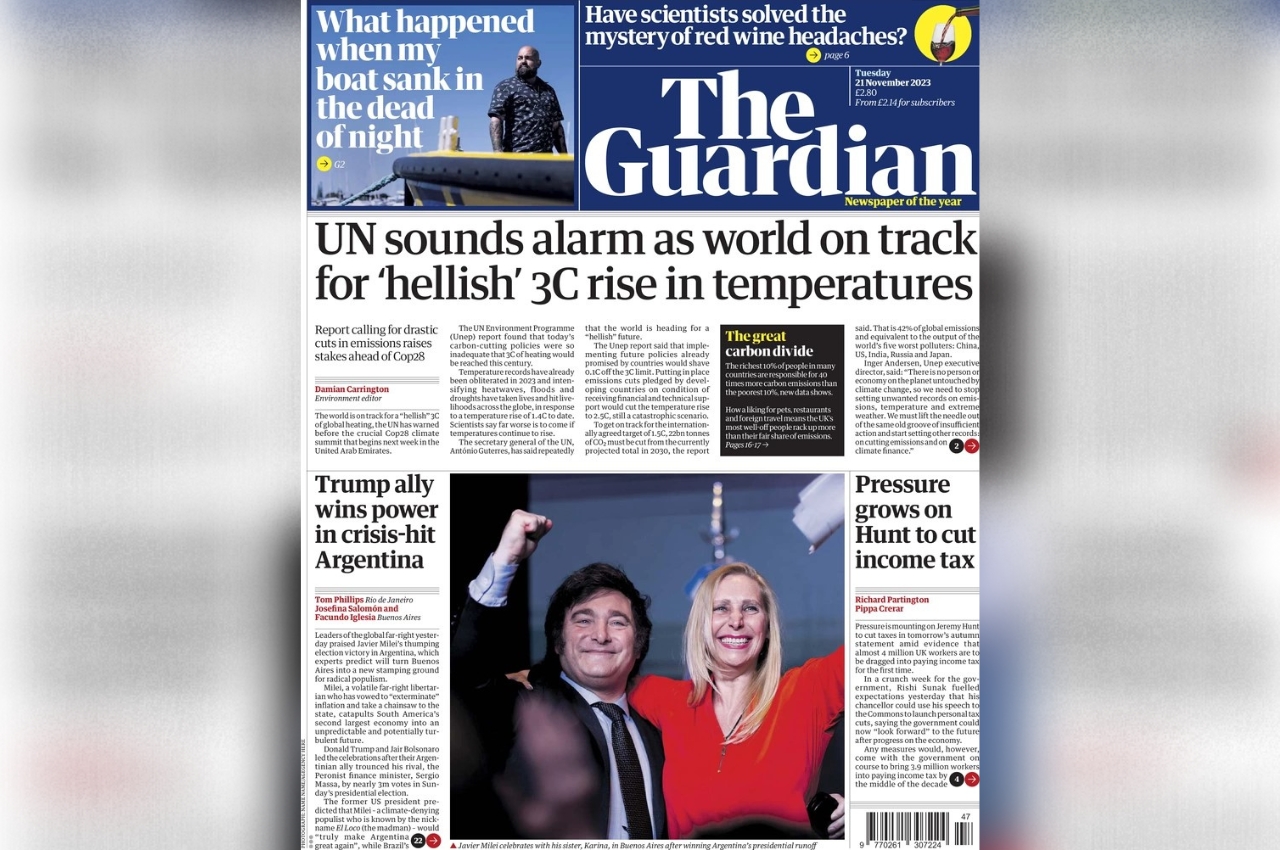Hotter than ever

In November, the planet briefly exceeded a dreaded milestone: 2°C of warming above pre-industrial levels.
Data from the Copernicus Climate Change Service – run by the European Centre for Medium-Range Weather Forecasts – shows that on November 17 and 18, the planet was 2°C warmer than its average on those days between 1850 to 1900. It marked the first time in recorded human history that the 2°C warming threshold has been passed.
According to Dr Joëlle Gergis from the ARC Centre of Excellence for Climate Extremes, the milestone is disturbing, but doesn’t mean the Paris Agreement has already been broken.
“What is more important is the consistent, long-term trend, which is typically measured in 30-year base periods,” Gergis says. “The Paris Agreement refers to sustained temperature anomalies about 2°C, not just single-day or monthly temperature departures.”
With the world moving into an El Niño weather pattern, it appears likely that temperature records will continue to fall over the next few years.
Climate guru’s dire warning
Dr James Hansen is widely known as the scientist who warned US Congress about the dangers of human-driven climate change way back in 1988. Now Hansen and his team at Columbia University have released a report labelling the goal of restricting global warming to 1.5°C, “deader than a doornail.”
The report predicts that, on average, temperatures over the next decade will be more than 1.5°C hotter than pre-industrial times, the result of climate change moving significantly faster than previously estimated.
The sensational report hasn’t convinced everyone, though. Dr Michael Mann from the University of Pennsylvania responded to Hansen’s study at length on his personal website, questioning Hansen’s claims that ocean warming is accelerating and that a reduction in aerosol pollutants is increasing the absorption of solar radiation into the atmosphere.
“The standard is high when you’re challenging scientific understanding,” Mann says. “And I don’t think they’ve met that standard, by a long shot.”
“We cannot address the climate catastrophe without tackling its root cause: fossil fuel dependence”
Fossil pledge broken
The 2023 Production Gap Report has found that governments around the world are jeopardising the goal of restricting global warming to 1.5°C by continuing to plan new fossil fuel projects.
According to the report, the quantity of fossil fuels set to be produced in 2030 is 110 per cent more than would allow for the 1.5°C goal. It also shows that global coal production is set to increase until 2030, with oil and gas production on track to increase until 2050 or beyond.
“Governments are literally doubling down on fossil fuel production; that spells double trouble for people and the planet,” UN Secretary-General António Guterres says. “We cannot address the climate catastrophe without tackling its root cause: fossil fuel dependence.”
On track for 3°C
Ahead of the Cop28 climate summit in the United Arab Emirates in early December, the UN warned that the world was on track for a “hellish” 3°C of global heating.
In fact, according to the report, the world’s carbon-cutting policies are so inadequate that 3°C of heating would be reached this century.
The UN Environment Programme (Unep) report indicates that implementing policies already promised by countries would shave only 0.1°C off the 3°C limit. Putting in place emissions cuts pledged by developing countries on condition of receiving financial and technical support would trim the temperature rise to 2.5°C – still a catastrophic scenario.
To get on track for the internationally agreed target of 1.5°C, the report says 22bn tonnes of CO2 must be cut from the currently projected total in 2030. This is 42 per cent of global emissions and equivalent to the output of the world’s five worst polluters: China, the US, India, Russia and Japan.
“There is no person or economy left on the planet untouched by climate change, so we need to stop setting unwanted records on emissions, temperature and extreme weather,” says Unep executive director Inger Andersen. “We must instead lift the needle out of the same old groove of insufficient action, and start setting other records: on cutting emissions and on climate finance.”
Like to know more?
To read the UN Environment programme (Unep) report, go to www.unep.org/resources/emissions-gap-report

This article appears in Ecolibrium’s Summer 2023-24 edition
View the archive of previous editions
Latest edition
See everything from the latest edition of Ecolibrium, AIRAH’s official journal.




